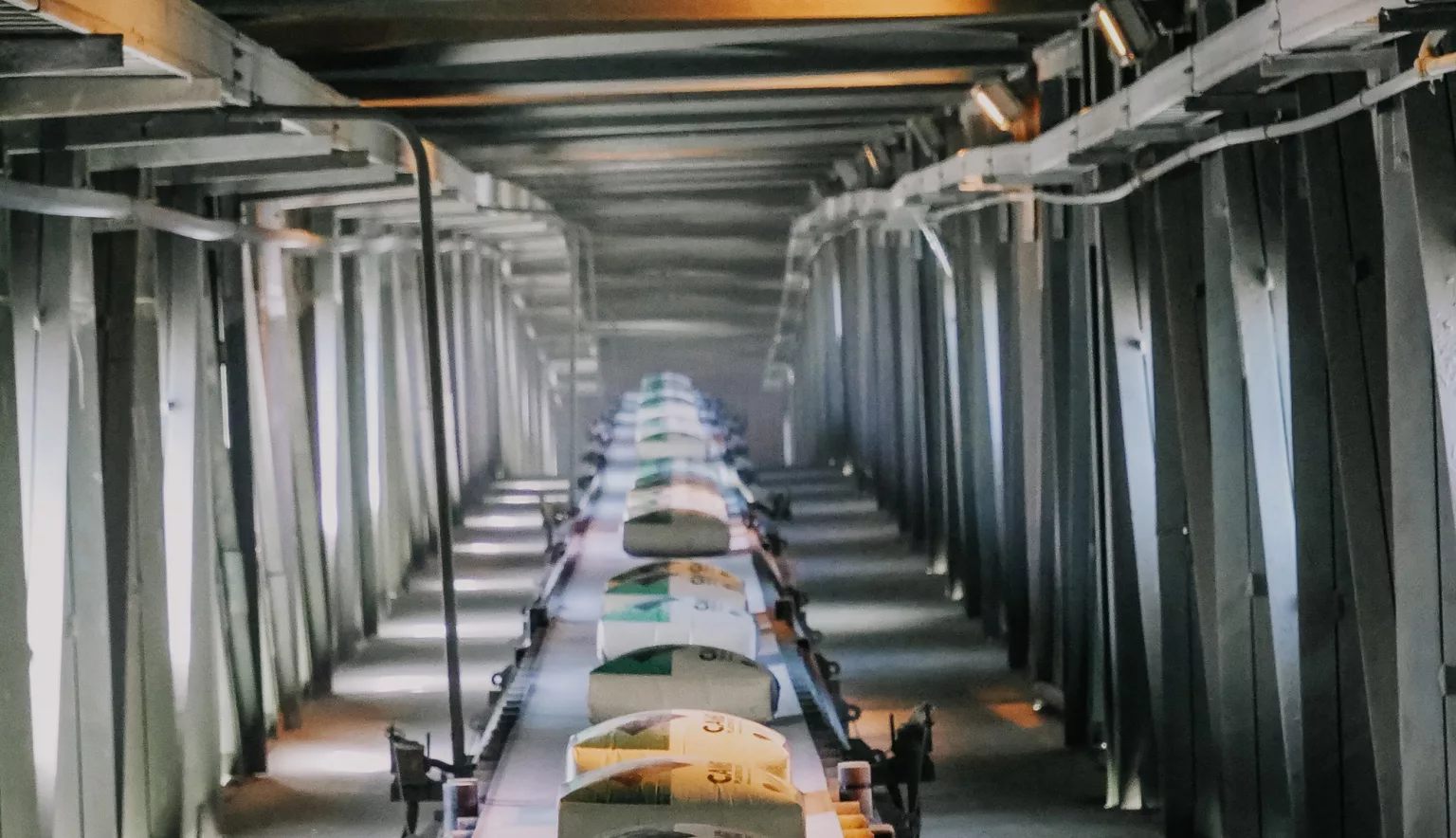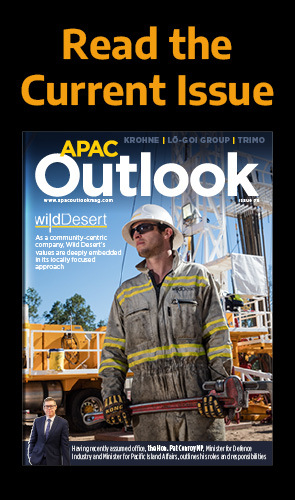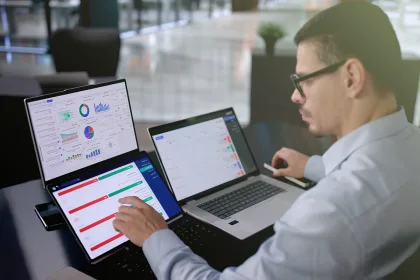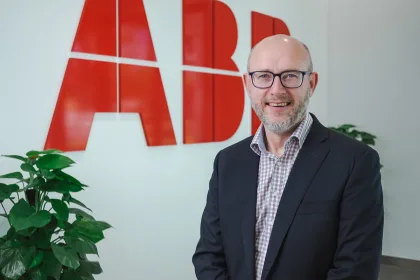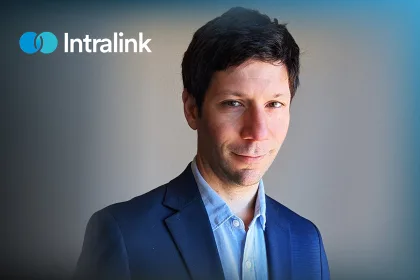Chip Mong INSEE Cement Corporation are the versatile Cambodian cement producer making a sustainable difference, as affirmed by CEO, Nicolas George.
CEMENTING THE KINGDOM
Phnom Penh is the beating heart of Cambodia’s urban dwelling population. The single metropolis in a country known as ‘a land of villages’, it is here that one of the country’s leading suppliers of quality cement are based.
“Chip Mong INSEE Cement Corporation (CMIC) is still a relatively young company, but it leverages the experience of both shareholders,” explains Nicolas George, CEO of the joint venture between the Cambodia-based Chip Mong Group and Thai cement company, Siam City Cement Public Company Limited (SCCC).
“Both Groups have very long experience in building materials and a deep understanding of the Cambodian market,” he adds.
We first caught up with Nicolas George back in Issue 43, examining the recovery and development of Cambodia in the aftermath of the Khmer Rouge regime and the country’s phoenix-like resurrection. In today’s climate, the pandemic has become the latest factor threatening to hamper Cambodia’s economic and industrial development, yet the country remains an equally dynamic arena to operate in.
“The long-term potential of the country remains the same – a lot of infrastructure is still needed,” George states.
Indeed, with four-fifths of Cambodia’s population still living in rural areas primarily throughout the central lowlands, there remain resounding opportunities for the development of residential housing and large-scale commercial projects across the Kingdom.
A distinctly Cambodian enterprise, CMIC are proud of their roots and celebrate the company’s connection to their home country as a leading supplier of world-class cement. Indeed, this is what helps to give the company a leading edge over market competitors.
“CMIC is the only truly local-international cement company in Cambodia with a balanced shareholding between the local expertise of Chip Mong Group and the building material expertise of SCCC,” George explains.
It is the strength of this strategic partnership that has enabled CMIC to diversify its offering and widen the scope of its services, demonstrating unparalleled versatility.
“This gives us the capacity to adapt our offering and services to both local home builders and international contractors. We can answer any type of request and fulfil all types of customers’ expectations,” George states.
“I can say that as of today we are the only company providing a true sustainable solution for the disposal of industrial waste and plastic in Cambodia. This enables us to supply a cement with the lowest CO2 footprint in the local market”
Nicolas George, CEO, Chip Mong INSEE Corporation
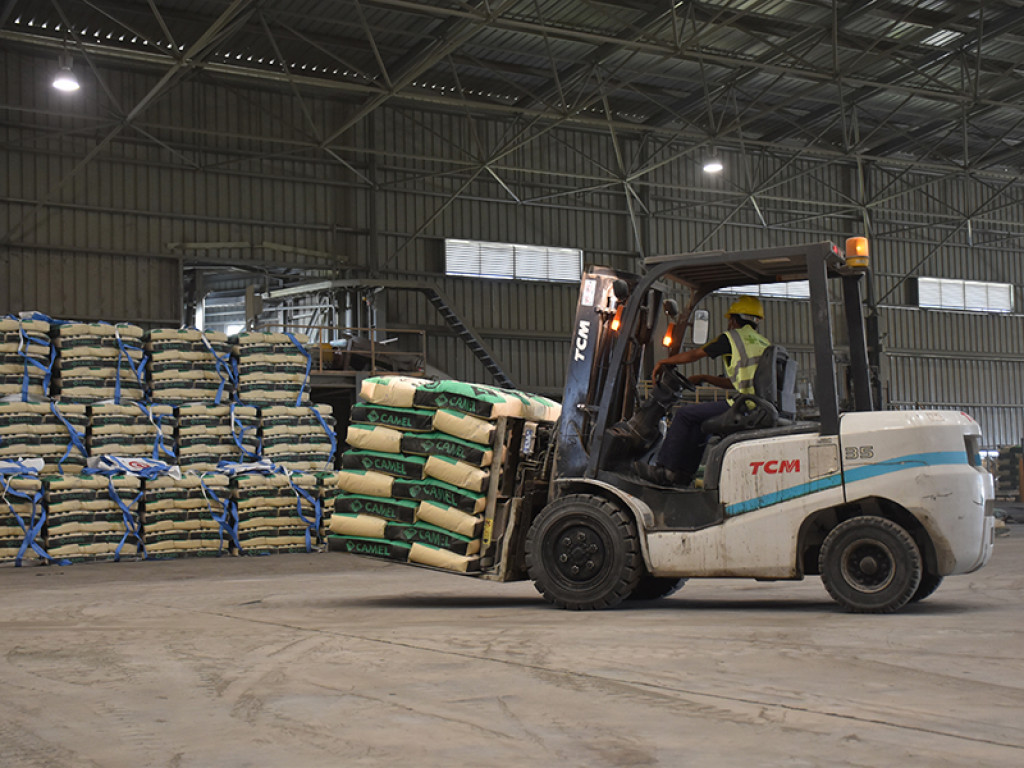
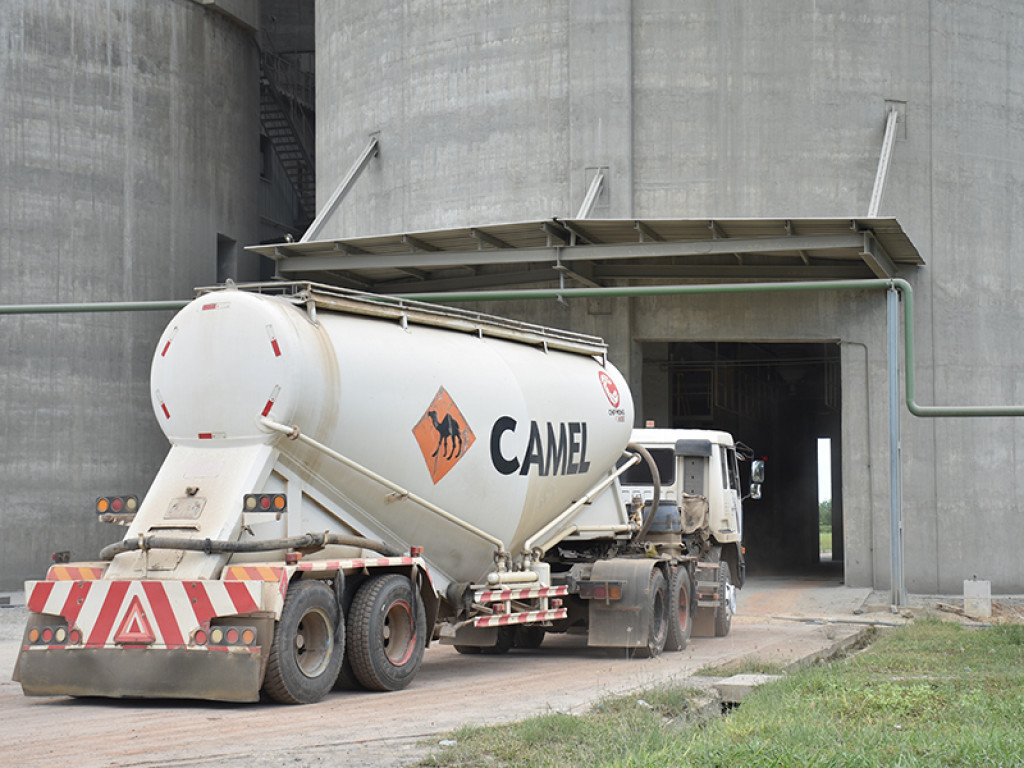
THE JOURNEY TO SUSTAINABILITY
In recent years, CMIC have taken major strides on their journey towards environmental sustainability, which has been instrumental in further distinguishing CMIC as a leading producer of building materials.
“I can say that as of today, we are the only company providing a truly sustainable solution for the disposal of industrial waste and plastic in Cambodia. This enables us to supply cement with the lowest CO2 footprint in the local market,” George states proudly.
Reflecting on the company as a microcosm of Cambodia as a whole, George recognises that industrial efforts concerning environmental sustainability are intrinsically linked to countrywide progress.
“This has become a key priority of the entire team in order to reduce our environmental footprint and contribute to the sustainability journey of Cambodia”.
“We have embraced our role in the global sustainability journey and decided to walk the walk here in Cambodia,” he comments.
CMIC’s recent addition of their Ecocycle business unit has been instrumental in cementing the company’s laudable stance on sustainability. As George concurs, “this is a key differentiator that makes us unique.”
“We remain primarily a cement producer with best-in-class product and services, but we are also extending our scope of services and expertise to waste management with our Ecocycle business unit.”
The Chip Mong Ecocycle division is a source of great pride for CMIC, giving the company a defining edge in waste management.
“We invested in a waste processing facility for pre-treatment and co-processing at our cement plant. We have also invested in waste storing and handling platforms near the major cities,” he explains. “We are now capable of handling and disposing in a sustainable way of more than 5,000 tonnes of industrial waste a month.”
This unit runs alongside CMIC’s primary asset of a brand new 5.000 tpd clinker integrated plant, located near the coastal city of Kampot Province and some 120 kilometres from the capital of Phnom Penh.
Environmental sustainability is something that George recognises as an ongoing commitment, rather than an end goal, as evidenced by CMIC’s 2030 sustainability road map.
“We are moving faster than planned on all aspects we have committed to.
“Since our commissioning in 2018, we have reduced our water consumption by 13 percent, our CO2 per tonne of cement by 16 percent and our power consumption per tonne cement by 17 percent. This was driven by several initiatives, but the most important ones are the optimisation of our solar and waste heat recovery systems, the launch of new products and the continuous reduction of our clinker factor. But above all, the start of our Ecocycle activity was a leapfrog move toward CO2 reduction,” observes George.
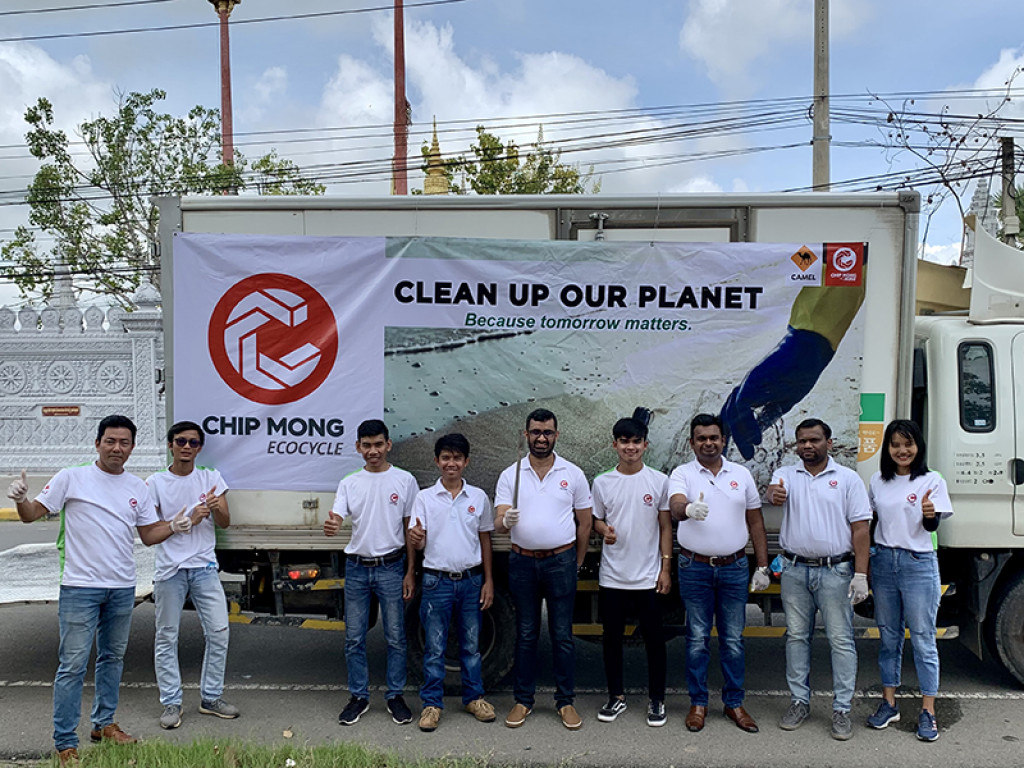
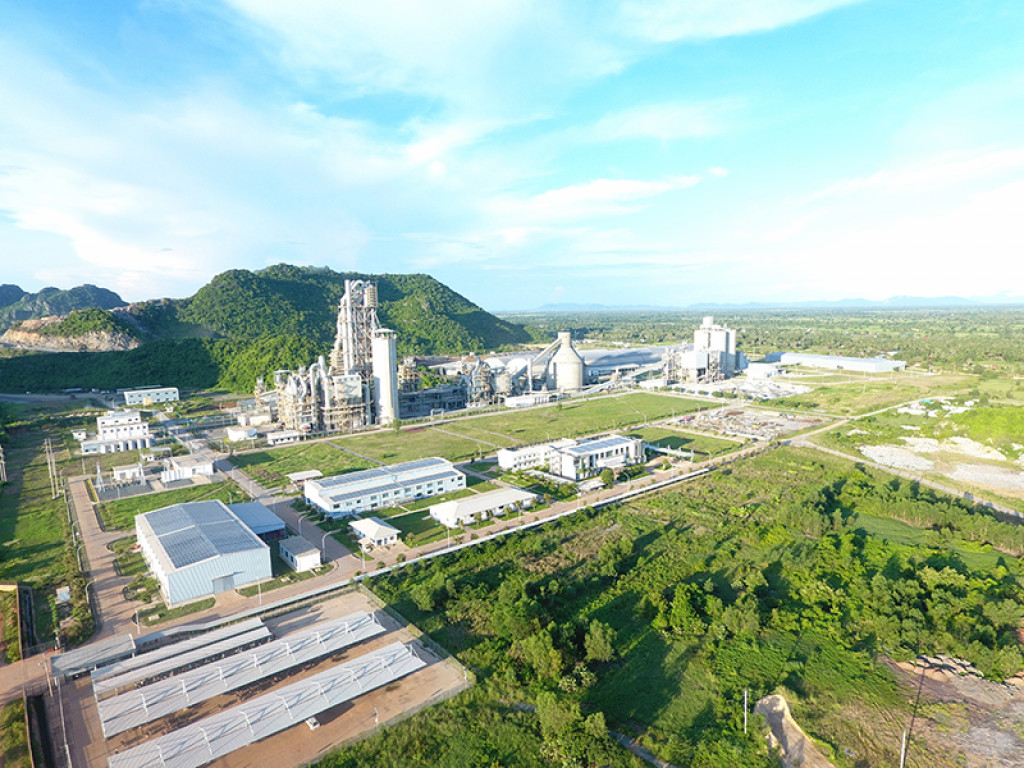
OVERCOMING THE PANDEMIC
Throughout 2020, the COVID-19 pandemic introduced industry-wide disruptions across the globe. As a country that endeavours to reach upper middle-income status by 2030, Cambodia’s economy has been able to withstand the financial impact. As such, George remains largely unperturbed.
“The economy has been very resilient to the COVID-19 crisis. Of course, we are experiencing a slowdown in the construction sector, but except during the recent lock down, the level of activity remains very reasonable and investor confidence is still good,” he concludes optimistically.
Turning to talk of how CMIC managed the erosion in demand and shifting industrial landscape, George argues that rather than adapting complex survival strategies when forced to adjust, Chip Mong simply narrowed their focus where it was most needed.
“We engaged in a simplification and prioritisation exercise. We focused on very few levers, only the ones that create the most value, and relentlessly executed them. This translated in excellent results for 2020 and the dynamic continues in 2021 despite a challenging market environment.”
Emerging relatively unscathed from such a crisis would not have been possible for CMIC without a stable backbone of partners and suppliers.
“In the current environment experiencing global supply chain disruption, it is essential to have reliable and solid partners. The past 12 months have proven that we did bet on the right ones, as we have so far never suffered from shortage of material or parts.”
“Even during the strict lockdown period, our supply chain partners have always delivered on their commitments,” he adds.
Identifying an opportunity for progress in this area, CMIC are focused on further optimising supply chain operations with a view to lessen costs for both parties. “Good progress is being made, in the fields of logistic and manufacturing process.”
With regards to the problem of a remote workforce, CMIC’s staff remained “motivated and mobilised”, despite the challenges of working from home. This versatility has not gone unnoticed or unappreciated.
“I must commend the entire CMIC team for its extreme agility and adaptability since the start of the pandemic,” George comments.
“The main benefit from this situation was for the entire team to realise that even during very challenging times, results come if you have a plan, and you work hard to make it happen.”
“Land fill remains the preferred solution in Cambodia, despite being the least respectful of the environment. The mindset is changing, and the authorities are very supportive, but we need to do more to accelerate the process”
Nicolas George, CEO, Chip Mong INSEE Corporation
LOOKING AHEAD
The remainder of 2021 will be defined by two major objectives for CMIC.
“The first one is to launch our new bulk cement product at the start of H2,” George elaborates. “This will contribute to further improving the quality of product we provide and answer some specific needs of customers in Cambodia. This new product will also have the benefit of contributing to our sustainability ambition.”
Further to this, CMIC will continue to dedicate their energies to their industrial waste processing asset.
“We still need to convince a large number of companies to give a higher consideration to the way they manage their waste. Land fill remains the preferred solution in Cambodia, despite being the least respectful of the environment. The mindset is changing, and the authorities are very supportive, but we need to do more to accelerate the process,” claims George.
With this laudable eco-conscious approach at the fore, CMIC are responsible for championing Cambodia’s development on a promising trajectory.



